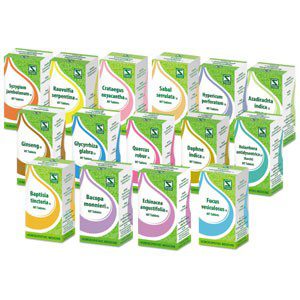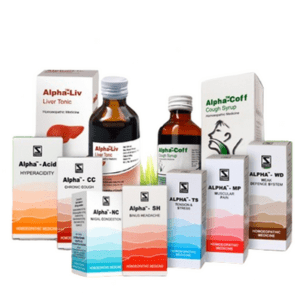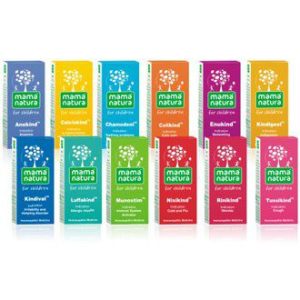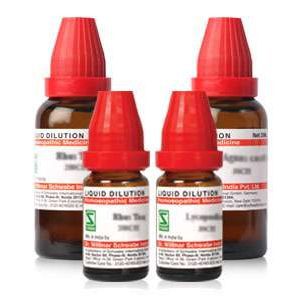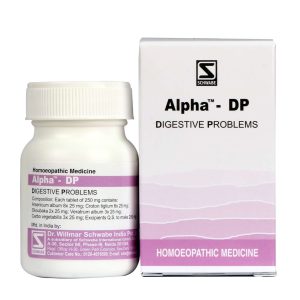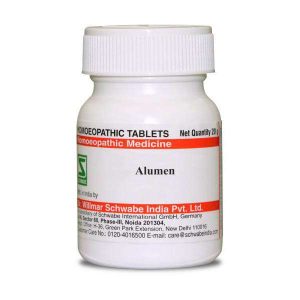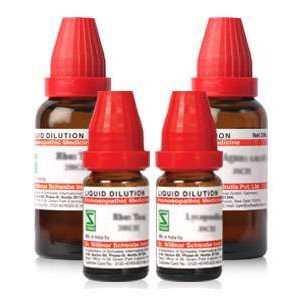
Eyes On Allergies: How Homeopathic Remedies Can Soothe Your Allergic Eye Conditions
- Dr. P T Ponmani
- No Comments

Eye allergies, also called allergic conjunctivitis, happen when the eyes react to allergens, triggering uncomfortable symptoms. These allergies are common and can affect people of all ages, especially during certain seasons.
Table of Contents
ToggleCommon types of eye allergies
- Seasonal allergic conjunctivitis: This is the most common type and often flares up during spring, summer, or fall due to exposure to pollen from trees, grasses, and weeds.
- Perennial allergic conjunctivitis: It occurs year-round and is aggravated by indoor allergens like dust mites, pet dander, and mold.
- Contact allergic conjunctivitis: Caused by reactions to contact lenses or the solution used to clean them.
- Giant papillary conjunctivitis: Typically occurs in people who wear contact lenses for extended periods.
- Vernal keratoconjunctivitis: A more severe form that usually affects children and young adults, particularly in warm climates.
Causes of eye allergies
Pollen, dust, mold, pet dander, smoke, strong fragrances, and pollution are some allergens that trigger eye allergies. Even makeup or eye drops can sometimes cause an allergic reaction.
Also Read Essential Homeopathic Remedies For Your First Aid Kit
Symptoms of eye allergies
Eye allergy symptoms might range from mild to severe and usually affect both eyes. Common signs include:
- Red, itchy eyes: One of the most bothersome symptoms.
- Watery or teary eyes: Caused by the body’s attempt to flush out allergens.
- Swollen eyelids: The area around the eyes may become puffy or inflamed.
- Burning sensation: The eyes may feel irritated or gritty.
- Sensitivity to light: Bright light can worsen discomfort.
- Blurry vision: Temporary due to excess tearing or inflammation.
Caring for eye allergies
If you experience eye allergies, the first step is to identify and avoid triggers as much as possible. Wearing sunglasses outdoors and keeping windows closed during high pollen seasons can help. Over-the-counter artificial tears or antihistamine eye drops can provide relief. However, if the symptoms persist or worsen, it is vital to consult an ophthalmologist who may give out prescription or anti-allergic medications. If you experience severe symptoms such as persistent and severe redness, persistent pain, or sudden changes in vision, seek immediate medical attention.
Taking proactive steps and seeking proper care can help keep eye allergies under control, allowing you to enjoy life without constantly rubbing your eyes or feeling uncomfortable.
Are you experiencing red, itchy, and watery eyes? That could be eye allergies, also known as allergic conjunctivitis. Eye allergies happen when your immune system overreacts to allergens, releasing chemicals like histamines that cause inflammation. This guide breaks down the causes, symptoms, prevention tips, and treatments, including both traditional and natural approaches.
What causes eye allergies?
Knowing the triggers of your allergies is the first step to managing them.
Allergens:
- Seasonal allergies: Pollen from trees, grasses, and weeds during spring, summer, and fall are common triggers for seasonal allergic conjunctivitis. Such tiny particles can easily get into your eyes, causing irritation and discomfort.
- Year-round allergies: Things like dust mites, mold, pet dander, and feathers.
Environmental irritants:
- Smoke, strong perfumes, diesel fumes, and airborne chemicals can irritate your eyes.
Other eye problems:
- Dry eye syndrome: Not producing enough tears can lead to irritation.
- Blepharitis: Inflammation of your eyelids caused by clogged oil glands.
- Conjunctivitis: Infections or inflammation of the eye lining, whether allergic, bacterial, or viral.
Lifestyle factors:
- Spending too much time staring at screens.
- Wear contact lenses, especially if you don’t clean or wear them overnight.
Common symptoms of eye allergies
If you’ve got eye allergies, you might notice:
- Red, itchy eyes that water a lot.
- Swollen eyelids and sensitivity to light.
- A burning or gritty feeling in your eyes.
- Sneezing, a runny nose, or congestion often appear alongside eye issues.
Also Read Eye Pain? Try Homeopathy Medicine for Quick and Effective Relief
How are eye allergies diagnosed?
If your symptoms don’t go away or seem severe, seeing a doctor is a good idea. They might:
- Ask about your history: They’ll find patterns to determine your triggers.
- Examine your eyes: Check for redness, swelling, or discharge.
- Test for allergies: Patch tests or swabs to identify infections or allergens.
Home remedies for eye allergies
You can try these simple fixes at home to ease symptoms:
Compresses
- Use a warm compress to relieve itchiness.
- A cold compress can help with swelling.
Keep the air moist
- Use a humidifier to prevent dry air from irritating your eyes.
Practice good eye hygiene
- Clean your eyes with cool water or a damp cloth.
- Always remove makeup before bed.
The 20-20-20 Rule
- Remember the 20-20-20 Rule: For every 20 minutes spent looking at a screen, a person should take a 20-second break and look at something 20 feet away. This practical advice can help you manage your eye allergies effectively.
Steer clear of allergens
- Keep windows shut during high pollen times.
- Dust regularly and wash bedding to avoid dust mites.
- Keep your pets out of the bedroom.
Take a break from contacts
- Switch to glasses if your allergies flare up. Disposable lenses can also help minimize future irritation.
Natural remedies
- Cucumber slices: Place cold slices on your eyes to reduce puffiness.
- Rosewater: Use as eye drops or a rinse for a soothing effect.
- Green tea: Known for its anti-inflammatory properties, it can calm irritated eyes.
Medical treatments for eye allergies
If home remedies aren’t cutting it, consider these options:
Over-the-counter (OTC) options
- Artificial tears to keep eyes moist.
- Antihistamine eye drops to fight allergic reactions.
Prescription medications
- Antibiotics: For bacterial infections.
- Steroid drops: For more severe inflammation.
- Mast cell stabilizers: To help prevent future allergic reactions.
Allergy shots (Immunotherapy)
- These shots gradually train your immune system to tolerate specific allergens.
Surgical interventions
- In rare cases, procedures like clearing blocked tear ducts or addressing advanced blepharitis may be necessary.
Homeopathy for eye allergies
If you’re looking for natural remedies, homeopathy might be worth a try:
- Apis mellifica: Great for swollen, itchy eyelids; works well with cold compresses.
- Euphrasia officinalis: Helps with watery eyes and burning pain.
- Natrum muriaticum: Eases burning tears, swollen lids, and a bruised feeling.
- Argentum nitricum: Good for light sensitivity and sticky discharge.
- Pulsatilla: Works on thick yellow discharge and itching relieved by cool air.
Homeopathy is based on “like cures like” and naturally stimulates the immune system. It’s non-toxic and safe for long-term use.
Ayurvedic approach to eye allergies
Ayurveda focuses on balancing the body’s natural energies and detoxifying. Treatments include:
Herbal solutions
- Turmeric: An anti-inflammatory powerhouse; mix it with warm milk.
- Neem tea: Helps cleanse the body and relieve symptoms.
- Licorice root: Soothes irritation.
Cleansing therapies (Panchakarma)
- Techniques like nasal irrigation and oil massages remove toxins.
Dietary changes
- Eat fresh fruits and veggies to strengthen your immune system.
- Cut back on processed and spicy foods.
Lifestyle tips
- Use herbal eyewashes.
- Practice yoga and breathing exercises (pranayama) to lower stress and improve health.
Prevention tips for eye allergies
Keeping allergies at bay takes a little planning:
- Limit allergen exposure: Use hypoallergenic bedding and close windows during pollen-heavy seasons.
- Protect your eyes: Wear sunglasses outside to block dust and pollen.
- Maintain cleanliness: Wash your hands often, avoid rubbing your eyes, and keep your environment clean.
- Manage screen time: Take regular breaks and adjust brightness to reduce strain.
- Improve the air quality: Air purifiers and de-humidifiers can help minimize allergic reactions.
Also Read Heal the Eyes with Effective Homeopathic Medicine
Conclusion
Most allergic conditions of the eyes can be managed with simple but effective home remedies, medication, and lifestyle adjustments. Identifying the triggering factors for your symptoms is crucial so as to avoid exposure. Homeopathy offers a safe, gentle, yet effective alternative for long-term solace if you want to opt for a natural choice. However, if the symptoms persist or worsen, do not hesitate to consult a healthcare professional.
With constant care and suitable strategies, you can avoid eye allergies and thereby improve your overall eye health and quality of life.












